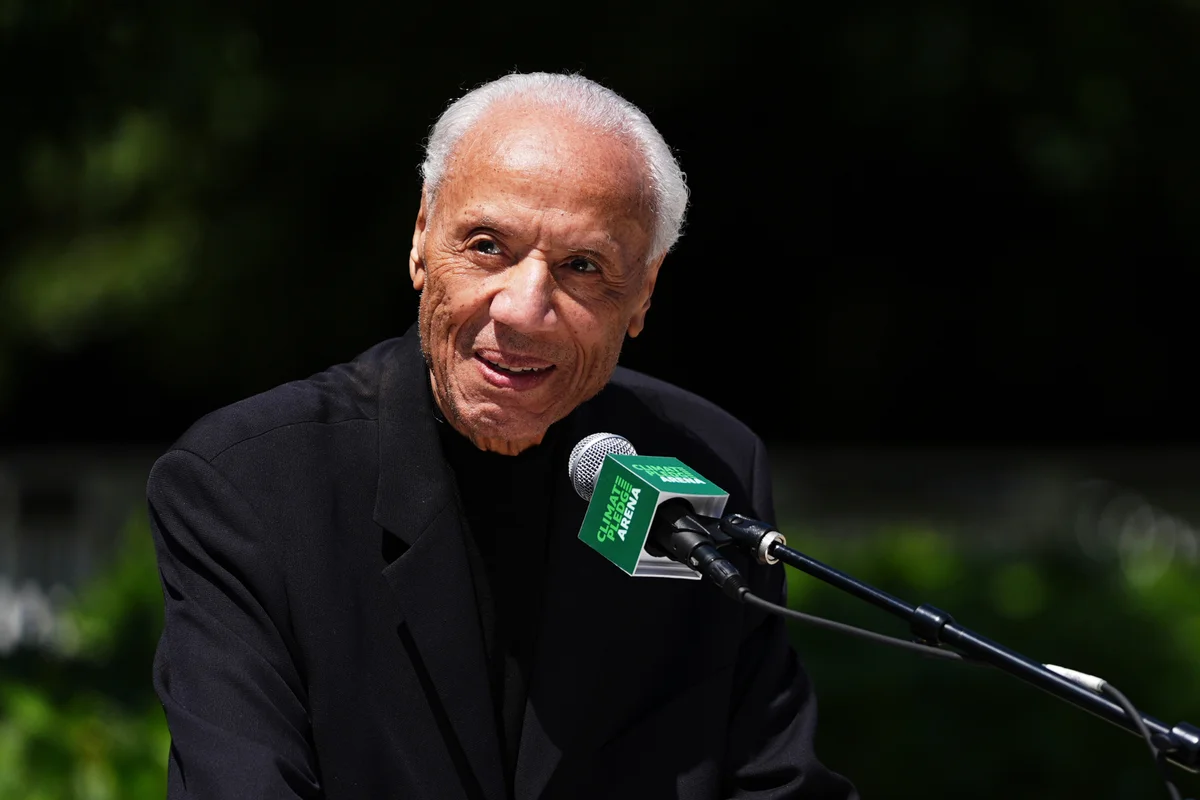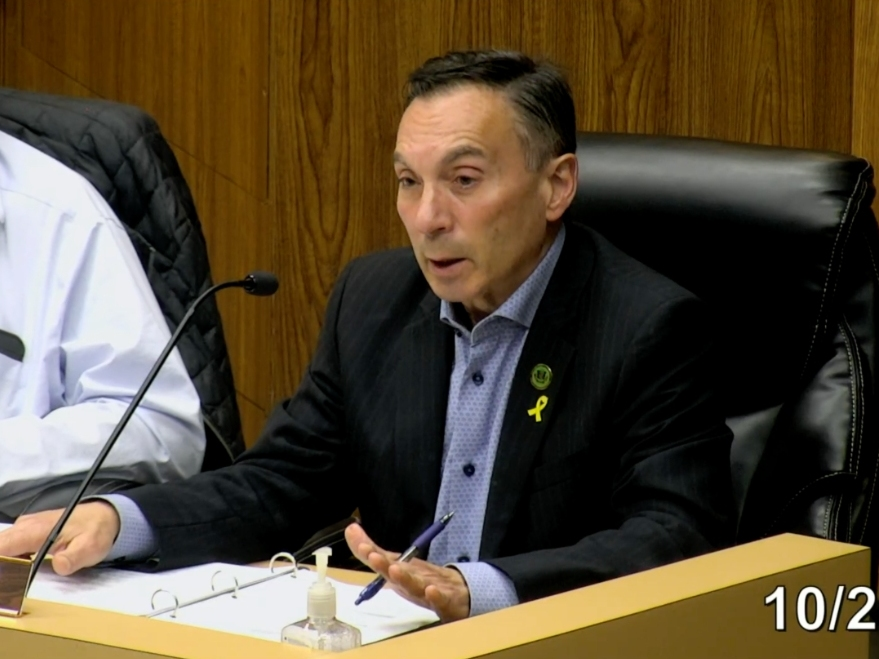Copyright independent

Lenny Wilkens, a towering figure in basketball history and a rare three-time inductee into the sport's Hall of Fame, has died at the age of 88, his family announced on Sunday. Enshrined for his unparalleled contributions as both a player and a coach, Wilkens passed away surrounded by loved ones, with the cause of death not immediately released. Wilkens was celebrated as one of the finest point guards of his era, whose calm demeanour and astute tactical mind later transitioned seamlessly to the sidelines. He began his coaching career as a player-coach, evolving into one of the game's most respected and successful strategists. His coaching career spanned an NBA record 2,487 games. Beyond his individual Hall of Fame inductions as a player and a coach, he received a third honour as part of the 1992 US Olympic team, where he served as an assistant. Wilkens also led the American team to a gold medal at the 1996 Atlanta Games. NBA Commissioner Adam Silver paid tribute, stating on Sunday: "Lenny Wilkens represented the very best of the NBA — as a Hall of Fame player, Hall of Fame coach, and one of the game’s most respected ambassadors. So much so that, four years ago, Lenny received the unique distinction of being named one of the league’s 75 greatest players and 15 greatest coaches of all time." As a player, Wilkens was a nine-time All-Star. He was the first person to achieve 1,000 wins as an NBA coach and only the second individual to be inducted into the Basketball Hall of Fame for both playing and coaching. He famously guided the Seattle SuperSonics to their 1979 NBA title, cementing his iconic status in the city, where he was often regarded as a godfather of basketball, particularly after the Sonics relocated in 2008. He achieved all this with a notable grace, a quality he held dear. "Leaders don’t yell and scream," Wilkens told Seattle’s KOMO News earlier this year. Wilkens, who was named the 1994 NBA Coach of the Year with Atlanta, retired with 1,332 coaching victories. This league record was later surpassed by Don Nelson, who finished with 1,335 wins, and subsequently by Gregg Popovich, who retired with 1,390. His playing career spanned 15 seasons, featuring stints with the St. Louis Hawks, SuperSonics, Cleveland Cavaliers, and Portland Trail Blazers. He earned All-Star selections five times with St. Louis, three times in Seattle, and once with Cleveland in 1973 at the age of 35. A statue commemorating his time with the SuperSonics was unveiled outside Climate Pledge Arena in June. "Even more impressive than Lenny’s basketball accomplishments, which included two Olympic gold medals and an NBA championship, was his commitment to service — especially in his beloved community of Seattle where a statue stands in his honour," Silver added. "He influenced the lives of countless young people as well as generations of players and coaches who considered Lenny not only a great teammate or coach but also an extraordinary mentor who led with integrity and true class." Leonard Wilkens was born on 28 October 1937, in New York. His basketball education began on Brooklyn’s playgrounds and at the city powerhouse Boys High School, where he played alongside future major league baseball star Tommy Davis. He went on to excel at Providence College before being drafted by the Hawks as the sixth overall pick in 1960. His playing resume alone would have warranted Hall of Fame consideration, but his achievements as a coach, marked by both success and remarkable longevity, solidified his enduring legacy. Among his numerous other accolades, Wilkens was elected to the FIBA Hall of Fame, the US Olympic Hall of Fame, the College Basketball Hall of Fame, the Providence Hall of Fame, and the Cleveland Cavaliers’ Wall of Honour. His extensive coaching career included two stints in Seattle totalling 11 seasons, two seasons in Portland (during one of which he still played and averaged 18 minutes per game), seven seasons each in Cleveland and Atlanta, three seasons in Toronto, and parts of two years with the New York Knicks. Warriors coach Steve Kerr, who played under Wilkens from 1989 to 1993, remembered him for the dignity with which he navigated life. "He was such a dignified human being and a great leader with this kind of quiet confidence," Kerr said. "He’d been through quite a bit in his life, in his childhood, just in America and dealing with being a Black man in America. And he shared some of that with us and for him to forge the career that he did in the game and to make the impact that he did on so many people, pretty impressive." Wilkens first claimed the top spot on the NBA’s all-time wins list on 6 January 1995, while coaching the Hawks, surpassing Red Auerbach’s record with his 939th victory. He then became the first coach to reach 1,000 career wins, a milestone since matched by nine others. The idea of playing and coaching simultaneously was first broached before the 1969 season during a casual game of pool at the home of SuperSonics general manager Dick Vertlieb. "I thought he was crazy," Wilkens recalled. "I kept putting him off, but he was persistent. Finally, we were getting so close to training camp, so I said, ‘What the heck, I’ll try it.’" From that point, he grew increasingly fond of coaching. He once recounted a game where Seattle trailed the Cincinnati Royals by four points with seconds remaining. Wilkens drew up a play for a dunk, then ordered a press as the Royals were out of timeouts. The Sonics stole the inbound pass, scored to tie, and won in overtime. "I was like, ‘Wow!’" Wilkens said. "I had just done something as a coach that helped us win, not as a player." After his coaching career concluded in 2005, Wilkens returned to the Seattle area, where he had spent every offseason. For decades, he ran his foundation, primarily benefiting the Odessa Brown Children’s Clinic in Seattle’s Central District. Wilkens is survived by his wife, Marilyn; their children, Leesha, Randy, and Jamee; and seven grandchildren.



